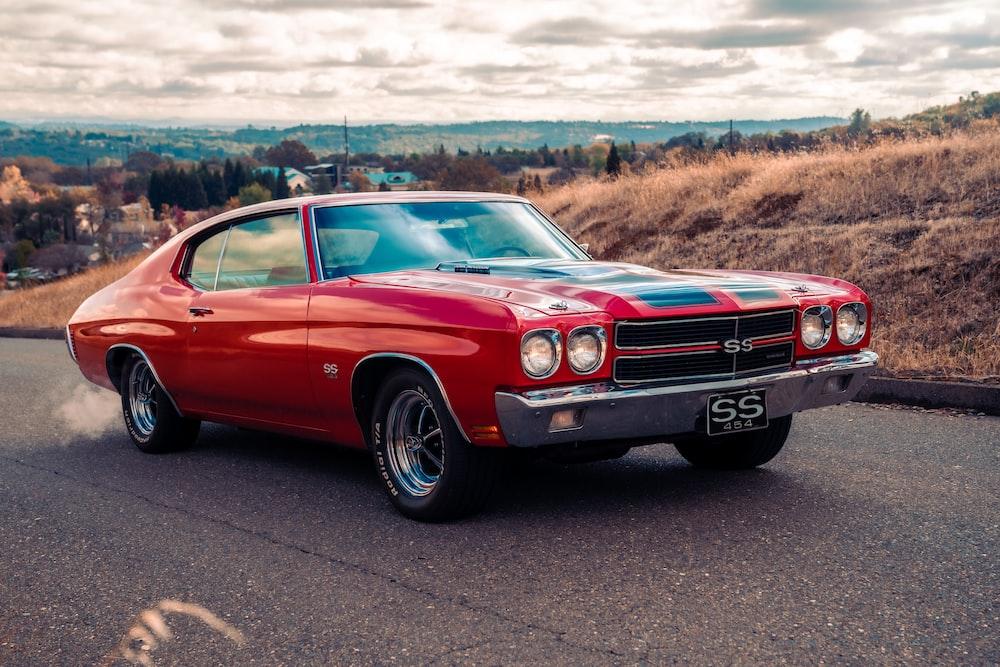Classic Cars as an Investment: Preserving Nostalgia and Potential Profit
Table of Contents
Introduction
In a world driven by financial markets and unpredictable investments, classic cars have emerged as a unique and captivating alternative for those seeking to combine their passion for automobiles with the potential for financial gains. While the primary purpose of classic cars may be to evoke a sense of nostalgia and preserve automotive history, they have also proven to be a compelling investment opportunity. In this article, we will explore the reasons why classic cars can be a wise investment choice, delving into their historical appreciation, market trends, and essential considerations for prospective buyers and collectors.
Historical Appreciation
Classic cars possess a remarkable ability to appreciate in value over time. Unlike most assets that deteriorate with age, well-preserved and sought-after vintage automobiles tend to increase in worth. The limited supply and growing demand for these iconic vehicles contribute significantly to their appreciation. Additionally, classic cars often embody exceptional craftsmanship, historical significance, and unique design elements that further enhance their desirability among collectors and enthusiasts.
Investment Performance
Studies and market analyses have shown that classic cars have outperformed many traditional investment options over the long term. According to the Knight Frank Luxury Investment Index, classic cars have delivered an average annual return of around 12% over the past decade, surpassing returns from art, wine, and other luxury assets. This consistent growth has drawn the attention of investors seeking to diversify their portfolios and capitalize on the enduring appeal of vintage automobiles.
Rarity and Exclusivity
Classic cars are characterised by their scarcity, which significantly contributes to their investment potential. As time progresses, the number of well-maintained and original vintage vehicles naturally decreases due to factors such as accidents, wear and tear, and scarcity of spare parts. The limited supply, coupled with the growing number of collectors and enthusiasts, drives up the demand, leading to higher prices for these unique automobiles. Owning a rare and exclusive classic car not only brings immense joy but also positions the owner to potentially benefit from its increasing market value.
Cultural and Historical Significance
Classic cars are not just machines; they represent an integral part of cultural and historical heritage. Many classic vehicles are associated with significant moments in automotive history or have iconic status due to their appearances in films, literature, or notable events. The intrinsic value of owning a piece of history goes beyond financial gains, as it allows enthusiasts to contribute to the preservation of automotive heritage for future generations. The emotional connection and passion surrounding classic cars make them highly sought-after, amplifying their investment potential.
Market Trends and Expert Guidance
While the classic car market may exhibit fluctuations, studying market trends and seeking expert advice can help mitigate risks and maximize returns. Engaging with reputable used classic car dealers, classic car clubs, and industry experts can provide valuable insights into emerging trends, demand patterns, and specific models poised for appreciation. Understanding the market dynamics and investing wisely based on research and expert guidance can significantly increase the chances of a successful classic car investment.
Considerations for Prospective Buyers and Collectors
Before venturing into the world of classic car investments, it is crucial to consider a few essential factors:
- Research: Thoroughly research the market, historical price trends, and the specific model(s) you are interested in to gain a comprehensive understanding of their value and potential growth.
- Condition and Authenticity: The condition and authenticity of a classic car greatly impact its value. Originality, maintenance records, and professional appraisals are crucial in assessing a vehicle’s authenticity and overall worth.
- Rarity and Popularity: Evaluate the rarity and popularity of the model you intend to invest in. Rare models with historical significance tend to appreciate more rapidly due to their limited availability and demand from avid collectors.
- Storage and Maintenance: Classic cars require proper storage and regular maintenance to preserve their condition and value. Consider the costs associated with secure storage facilities, insurance, and regular upkeep before making a purchase.
- Long-Term Commitment: Classic cars are long-term investments that require patience and commitment. Market fluctuations may occur, and it may take time to realize substantial returns. Be prepared to hold onto your investment for an extended period.
Conclusion
Classic cars offer a unique blend of passion, nostalgia, and investment potential. As the world evolves, these timeless automobiles continue to captivate enthusiasts and investors alike. With their historical appreciation, rarity, and cultural significance, classic cars provide a compelling opportunity for individuals to diversify their investment portfolios while preserving automotive heritage.
However, it’s important to approach classic car investments with careful research, consideration, and expert guidance. By understanding market trends, evaluating authenticity, and committing to proper storage and maintenance, investors can maximize their chances of enjoying the financial rewards and the enduring pleasure of owning a classic car.
So, whether you’re a car enthusiast with a penchant for history or an investor looking for alternative assets, classic cars offer a fascinating avenue to combine your passions and financial aspirations. Embrace the nostalgia, preserve automotive legacy, and embark on a journey that combines the joy of the open road with the potential for profitable returns.

